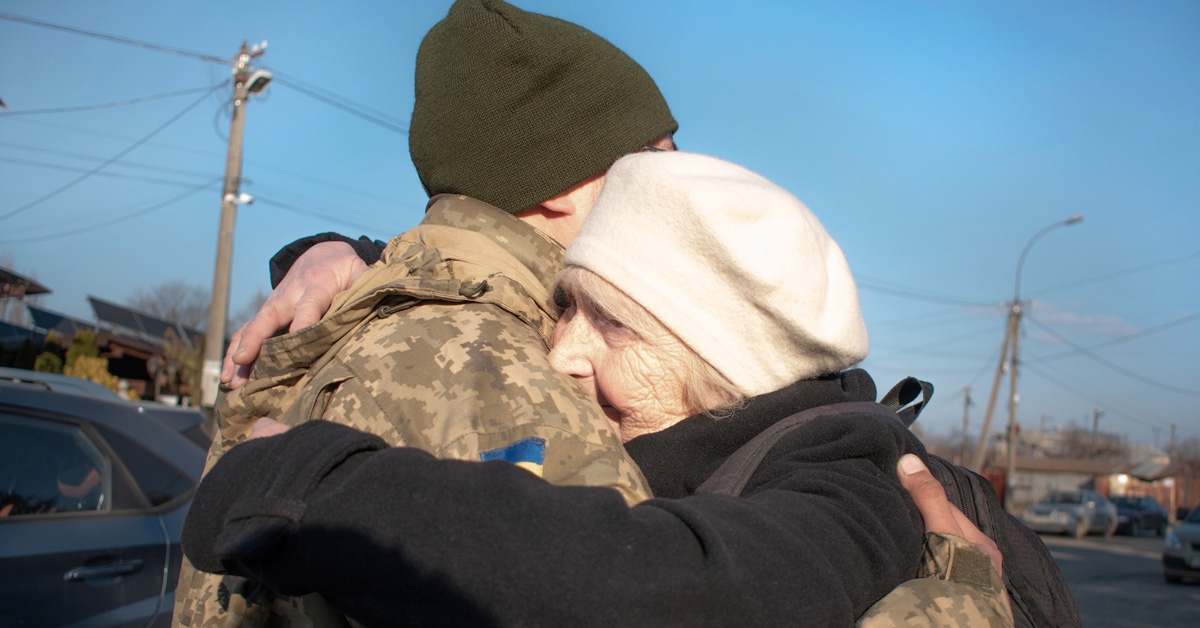Dear SPH community,
We are writing to bring your attention to a distinct public health crisis in Ukraine: Populations that already have specific needs have been left behind, and are isolated, not having their health needs met, financially vulnerable, and suffering in many other ways. One example of such a group is older adults, who are experiencing great trauma because of Russia’s invasion. More than 10 million people in Ukraine are 60 or older, one in four people, and many cannot flee the war zone because of cognitive or physical impairments or because they have no family to help them across the border. Others do not want to leave their homes, no matter the risk; and still others choose to stay to help the war effort.
Older people in Ukraine are now often isolated and living without heat or clean water and unable to search for food. Many are seeking shelter wherever they can because Russian shelling has destroyed their homes. As in the U.S., many have chronic medical conditions and have little access to drugs or health services, or even simple hygiene supplies. The effects of fear and hardship on their mental health is significant.
Members of our own SPH community have family in Ukraine who are affected. My grandmother — Dr. Shippee speaking here — is bedridden and cannot leave Ukraine. I’m concerned about her ability to get medical care should her health decline and worry about her access to food. Many older adults in similar situations have been left without their primary family caregivers, as their adult children may have sought safety abroad.
There are ways to help. The first is to acknowledge that, as in armed conflicts across the globe, older people are exceptionally vulnerable and a mostly unseen casualty of war. For example, many older people are currently trapped and/or killed in their homes, and on March 20, 56 people were killed by a Russian tank attack at a nursing home in Luhansk. Recognizing the threats to this overlooked population is a critical place to start. The second is to support efforts already on the ground. Ukrainians are going to great lengths to help trapped and isolated older people in their country, from delivering food one person at a time to running outdoor soup kitchens to working with major aid organizations, such as the World Food Program, to distribute food. Please support these efforts as you can. A list at the bottom of this message contains resources. If older people can get the help they need, they can (and do), in turn, help others.
Russia’s war with Ukraine shows no sign of abating and its ramifications will soon reverberate in countries currently facing extreme food shortages. These shortages will affect people in Ukraine and across the many countries that rely on Ukraine and Russia for wheat, particularly. The United Nations estimates that the war could cause an additional 7.6 million to 13.1 million people to go hungry and worsen an already dire public health crisis.
It’s tempting to feel helpless and hopeless at the thought of the suffering this war is causing and will continue to cause. The best way to counter these feelings is to stay true to our values and to act, doing whatever we can to make a positive difference. You can learn more about the growing humanitarian crisis in Ukraine at an upcoming SPH webinar on April 18.
Tim Beebe
Interim Dean
Tetyana Pylypiv Shippee
Associate Professor and Gerontologist
Resources to help people with specific care needs in Ukraine
- CARE
CARE is striving to reach 4 million people in Ukraine with aid and recovery, food, water, hygiene kits, psychosocial support, and cash assistance — and prioritizing the needs of women and girls, families, and the elderly. - HelpAge
HelpAge runs a program for almost 5,000 older people in eastern Ukraine. - World Food Program
The United Nations World Food Programme is providing critical food assistance for people fleeing the conflict. - The UN Refugee Agency (UNHRC)
UNHCR has stepped up our operations and capacity in Ukraine and neighboring countries. Your support can help ensure that people forced to flee their homes are sheltered and safe.

